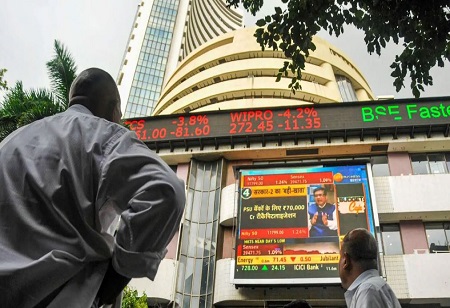
Following a recent run-up, Asian markets were mixed Thursday, with banking sector concerns easing and traders weighing central banks' interest rate plans in the aftermath of the recent turmoil.
Investors have been encouraged by assurances from governments around the world that the fallout from the failure of US regional banks and the takeover of Credit Suisse has been contained.
However, the flare-up has fueled speculation that the Federal Reserve will have to end its rate hike campaign to combat inflation sooner than expected in order to avoid further destabilising the finance industry.
This has even led to bets on officials lowering borrowing costs by the end of the year, with some forecasting the rate at just above 4% by 2024, down from more than 5% prior to the recent upheaval.
This has focused attention on the Fed's next policy meeting, with observers predicting that it will be the last increase, despite the fact that inflation remains much higher than the Fed's target.
"The Fed remains in a very difficult position," said Chris Senyek of Wolfe Research.
With banks stabilising, inflation remaining well above target, the labour market remaining historically strong, and the Fed desperately needing to regain credibility, we believe the (policy board) will walk by 25 basis points on May 3."
The latest woes among banks, which have been blamed on recent sharp rate hikes, are expected to force them to tighten credit, reducing the need for the Fed to hike further.
"The good news for stocks is that growth concerns have moved into the driver's seat after the recent banking shock, where investors are now positioning for the Fed to cut and instead rely on credit tightening to tame inflation," said Stephen Innes of SPI Asset Management.
"In fact, speculative money is now betting... that the disinflationary impulse from tighter credit will reduce the need for monetary policymakers to slow the economy through rate hikes, potentially leading to the Fed cutting."
"Indeed, speculative money is now betting... (that) the disinflationary impulse from tighter credit will reduce the need for monetary policymakers to slow the economy through rate hikes, which could potentially even cause the Fed to cut."
All three main indexes on Wall Street rose at least one percent, but Asia struggled to build on that.
Hong Kong dipped, even though Alibaba extended its gains after surging 12 percent Wednesday on news it intends to split into six units.
On Thursday, it said it would consider giving up control of some of its main businesses. The announcement this week lifted China's tech sector on hopes a long-running crackdown was nearing its endgame.
Tokyo, Shanghai, Singapore, Manila and Jakarta were also lower but Sydney, Seoul, Taipei and Wellington rose.
We use cookies to ensure you get the best experience on our website. Read more...